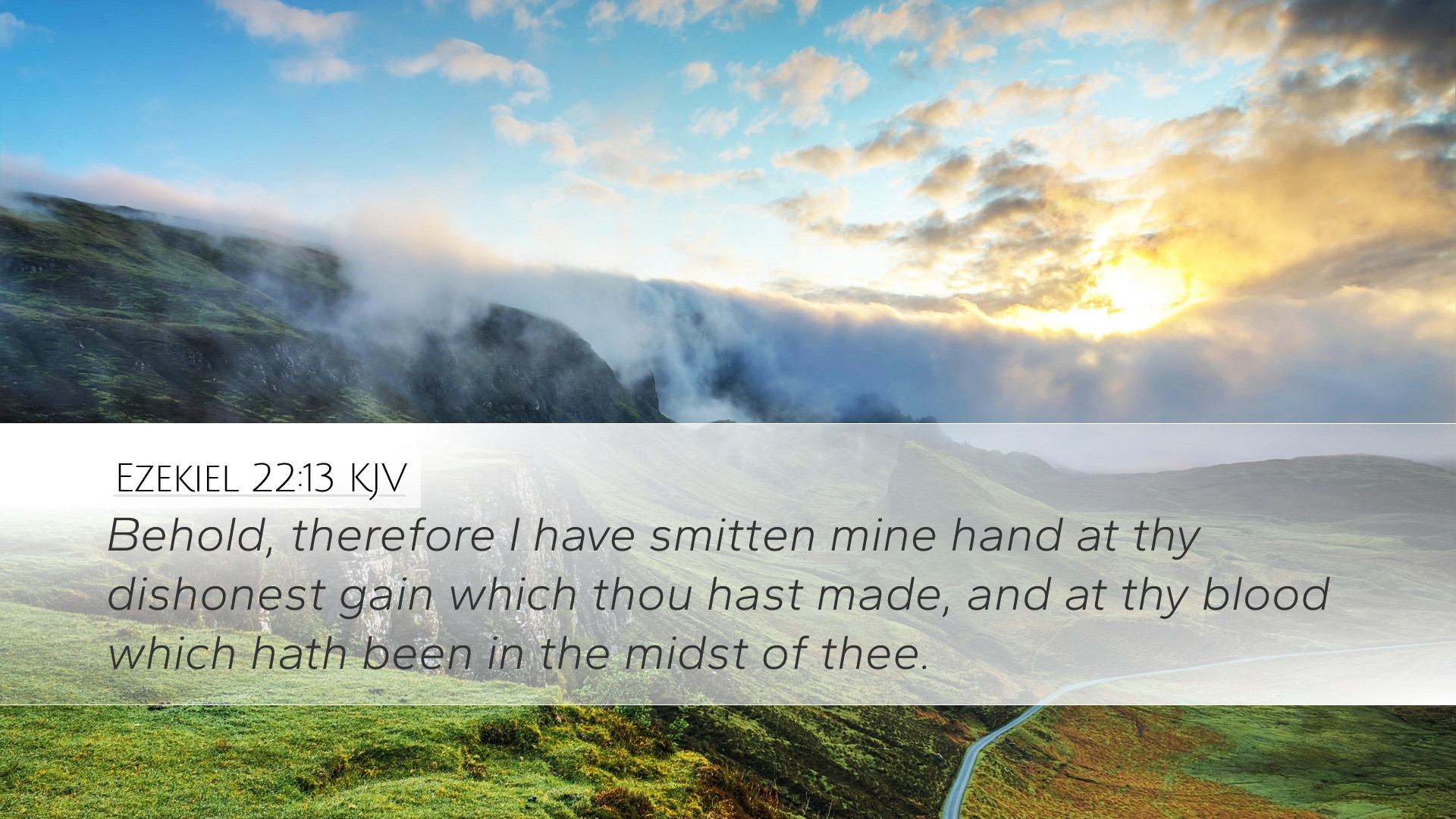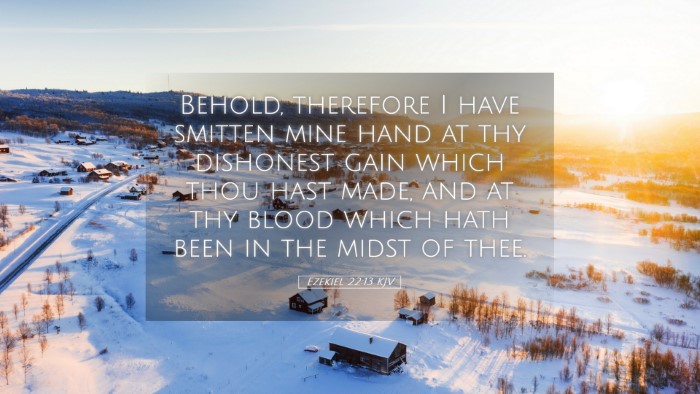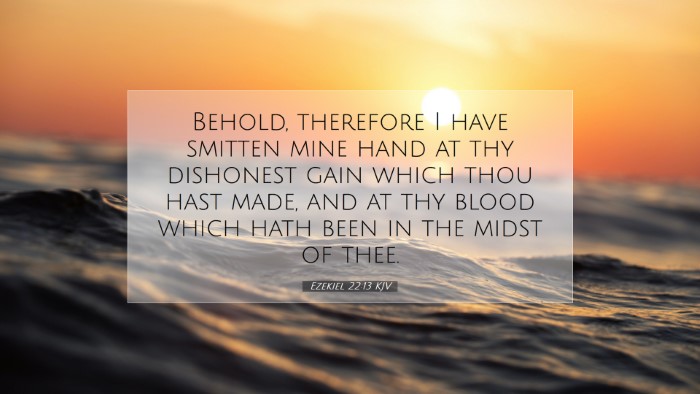Ezekiel 22:13 Commentary
Verse Context: Ezekiel 22:13 is situated within a larger passage where God, through the prophet Ezekiel, pronounces judgment against Jerusalem for its numerous sins. Ezekiel’s prophetic ministry serves as a reflection of the moral decay prevalent among God’s people in the city.
Text of Ezekiel 22:13 (KJV)
"And behold, I have smitten my hand at thy dishonest gain which thou hast made, and at thy blood which hath been in the midst of thee."
Exegesis and Commentary
This verse captures one of the fundamental grievances that God has against Jerusalem, highlighting the issues of dishonesty and violence.
Dishonest Gain
Matthew Henry: Matthew Henry emphasizes the severity of the sin of dishonest gain. He notes that God laments the economic exploitation that characterized the society, where the impoverished were often treated unfairly by those in power. The expression "I have smitten my hand" indicates God's disapproval and anger towards such sins which lead to societal injustice.
Albert Barnes: Albert Barnes connects the dishonesty of the populace with their spiritual decline. He asserts that such corrupt practices were expressions of a heart far from God. Barnes points out that dishonesty reflects a lack of fear of God and suggests that the people’s disregard for divine standards has resulted in impending judgment.
Adam Clarke: Adam Clarke provides a linguistic breakdown of the phrase “dishonest gain,” interpreting it as an indictment of both the material and spiritual neglect. He highlights that the pursuit of profit at the expense of others is a violation of the commandments, namely those regarding the love of neighbor.
Bloodshed in the City
Matthew Henry: Addressing the second part of the verse, Henry underscores the prevalence of violence and bloodshed within Jerusalem. He warns that continual sins lead to a cycle of judgment and reprisal, where both the victims and perpetrators exist in a vicious spiral of sin and its consequences.
Albert Barnes: Barnes interprets the reference to “blood” as indicative of the spiritual and moral decline that leads to societal breakdown. He states that blood shed in this context encompasses not only physical violence but also the spiritual consequences of a society that forsakes justice.
Adam Clarke: Clarke reflects on the image of blood in the streets, stating that it symbolizes the guilt and the thick atmosphere of iniquity that hangs over the city. He explains that such bloodshed is a direct consequence of a society built on greed and violence, reflecting God's displeasure.
Theological Insights
This verse serves as a poignant reminder of God's voice being raised against systemic injustice and moral corruption. The implications of this passage extend beyond the context of ancient Jerusalem to contemporary issues of ethics and morality within society.
- Divine Justice: The verse illustrates that God is deeply concerned with justice, and He will not turn a blind eye to wrongdoing.
- Corporate Responsibility: The sins mentioned are not isolated but are reflective of a communal failure. This challenges both individuals and communities to evaluate their role in societal issues.
- The Weight of Sin: Ezekiel's words remind believers of the heavy burden carried by unrepentant sin, which leads to destructive consequences not just personally, but collectively.
Applications for Today
Matthew Henry: Henry suggests that this passage calls for introspection among leaders and citizens alike. Those in positions of authority must consider the ramifications of their actions on the vulnerable.
Albert Barnes: Barnes encourages readers to mirror God's concern for justice in their actions, advocating for both individual integrity and societal reform in areas rife with corruption.
Adam Clarke: Clarke emphasizes the need for repentance and a return to righteousness, seeing this passage as an urgent call for moral revival in societies today.
Conclusion
Ezekiel 22:13 is a sobering reminder of God's displeasure with societal injustices reflected through dishonest gain and bloodshed. For pastors, theologians, and scholars, this verse calls for deep reflection, not only on the historical context but also on its relevance to contemporary society, urging a commitment to justice, integrity, and righteousness.


